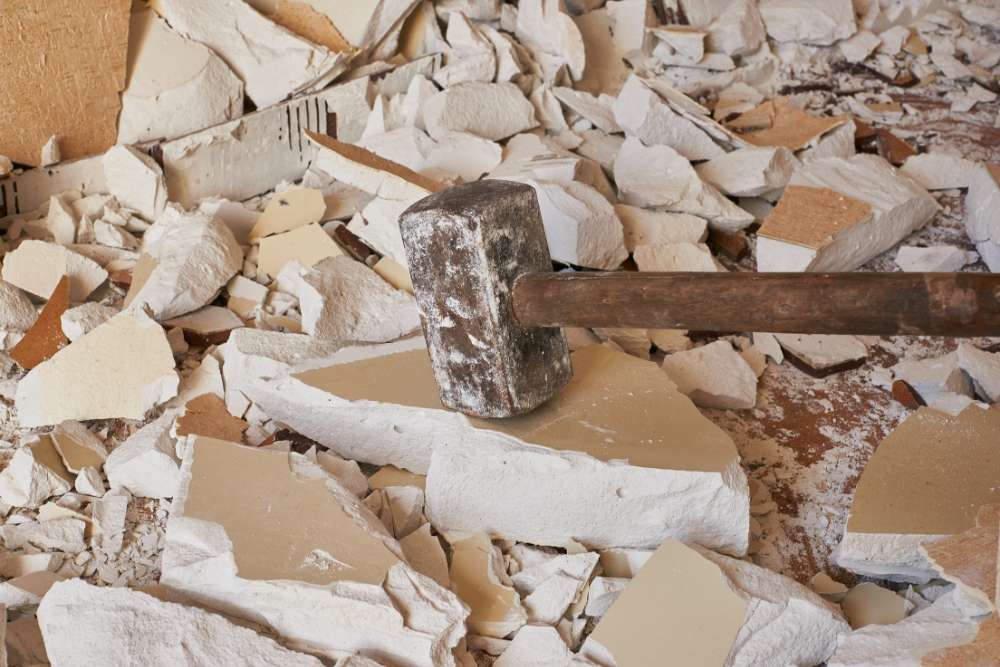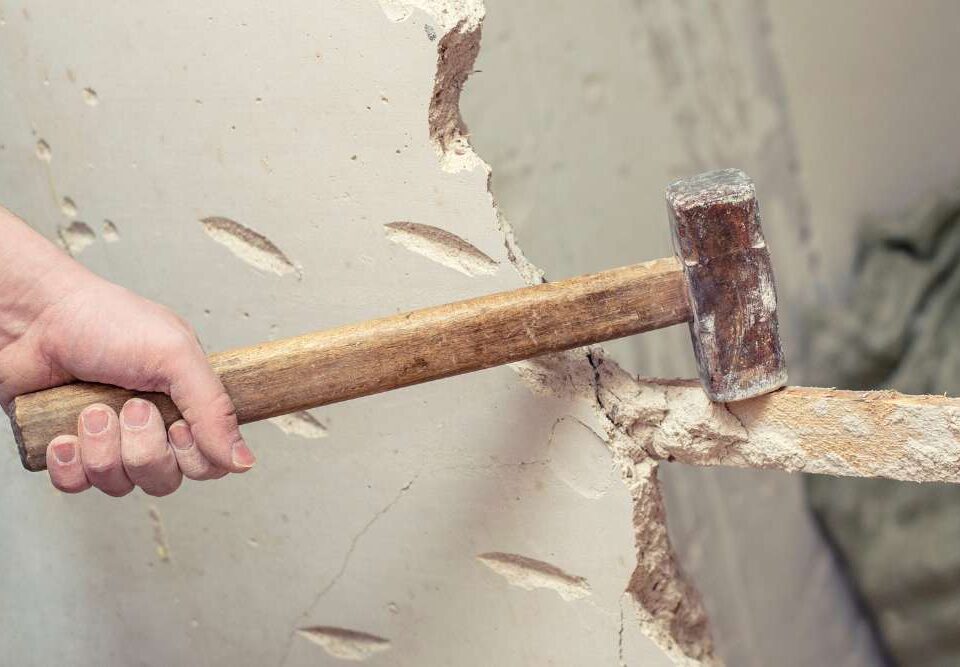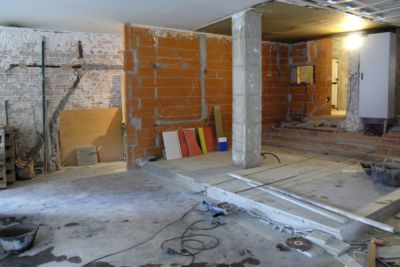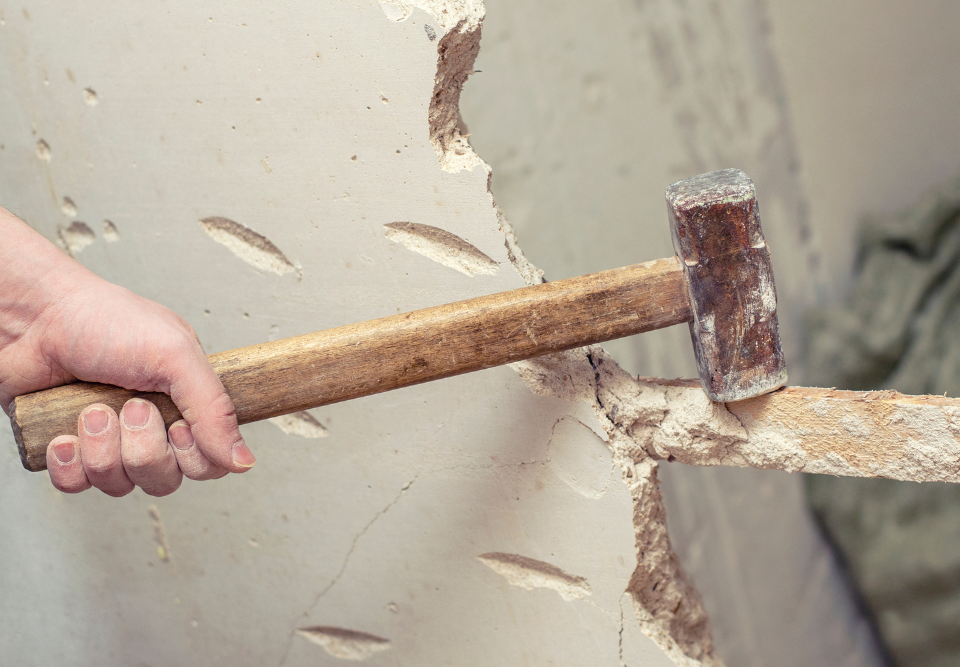
Tips for Concrete Removal Without Damaging Your Property
September 1, 2025
How to Safely Handle Demolition Cleanup
September 1, 2025The Environmental Benefits of Demolition Cleanup
Reducing Waste Through Responsible Demolition Cleanup
Demolition projects often leave behind a staggering amount of debris, from broken concrete to discarded wood and metals. Handling this waste responsibly can significantly reduce the environmental impact of construction activities. By separating materials and ensuring recyclables are processed correctly, less debris ends up in landfills, conserving valuable space and reducing greenhouse gas emissions from decomposition. This proactive approach also minimizes the release of harmful chemicals into soil and water, preserving local ecosystems and maintaining environmental integrity.
Moreover, responsible demolition cleanup encourages a culture of sustainability within the construction industry. When contractors prioritize recycling and reusing materials, they not only support eco-friendly practices but also foster innovation in resource management. Salvaging usable items like metal beams, timber, and concrete aggregates helps reduce the demand for new raw materials, lowering energy consumption and the carbon footprint associated with production. In this way, demolition cleanup transforms what could be environmental liability into a pathway for sustainable development and responsible resource utilization.
Conserving Natural Resources Through Material Recycling
Demolition cleanup provides an opportunity to reclaim materials that would otherwise be lost. Metals, concrete, bricks, and wood can all be repurposed or recycled, significantly reducing the need to extract new natural resources. This recycling process decreases energy consumption, lowers greenhouse gas emissions, and minimizes ecological disruption caused by mining or logging activities. By diverting these materials from landfills, communities actively contribute to a more sustainable and resource-efficient construction sector.
Reusing salvaged materials also fosters innovation and creativity. Architects and builders can integrate recycled elements into new projects, reducing environmental impact without sacrificing structural integrity or aesthetic appeal. Beyond immediate environmental benefits, this practice encourages a circular economy where waste becomes a valuable resource. As awareness of sustainable practices grows, demolition cleanup becomes not only a practical solution for waste management but also a catalyst for broader ecological responsibility and conservation.
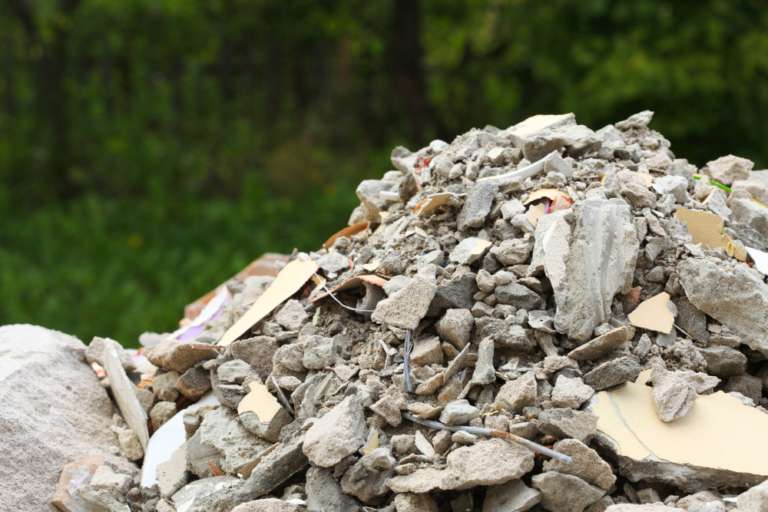
Limiting Pollution With Strategic Debris Management
Unmanaged demolition debris often releases pollutants into the air, soil, and waterways, creating hazards for both human health and local wildlife. Dust, asbestos fibers, lead paint residues, and chemical contaminants can easily spread if debris is not carefully handled. Strategic cleanup practices, including containment, proper disposal, and recycling, mitigate these risks. Effective debris management ensures that pollutants are isolated and treated, significantly reducing the potential for long-term environmental damage.
In addition to protecting natural habitats, careful debris management supports community well-being. Neighborhoods surrounding construction sites benefit from cleaner air, reduced dust, and safer streets. By prioritizing proper disposal and material sorting, demolition cleanup prevents hazardous substances from entering storm drains or soil, safeguarding water quality and reducing public health risks. These efforts collectively demonstrate how conscientious cleanup practices can align environmental stewardship with responsible urban development.
Promoting Energy Efficiency in Construction and Demolition
Recycling and reusing demolition materials directly impacts energy efficiency. Manufacturing new building materials demands significant energy inputs, often relying on fossil fuels. Salvaging materials from demolition projects diminishes this energy demand, as repurposed materials require less processing. Energy savings translate to reduced carbon emissions and lower overall environmental strain, making demolition cleanup an essential part of green construction strategies.
Beyond the obvious environmental benefits, energy-efficient material use fosters cost savings for developers and builders. Reducing the need to purchase new materials and minimizing transportation-related energy consumption lowers operational expenses while supporting sustainability goals. By integrating energy-conscious demolition cleanup practices, construction teams can enhance both ecological outcomes and economic efficiency, setting a benchmark for environmentally responsible building projects.
Supporting Wildlife and Ecosystem Health
Demolition debris can disrupt local wildlife and fragile ecosystems if left unmanaged. Large piles of rubble and hazardous materials create physical barriers and contamination that can affect plant and animal life. Cleanup efforts that emphasize sorting, recycling, and safe disposal help restore natural habitats and reduce ecological stress. Removing debris promptly allows for the natural regeneration of flora and fauna, promoting biodiversity and environmental resilience.
Moreover, responsible demolition cleanup encourages a landscape-centric approach to construction. By mitigating debris impact, soil quality is preserved, waterways remain uncontaminated, and urban green spaces can thrive alongside development projects. Such practices demonstrate how cleanup operations can extend beyond waste management to actively support ecosystem health, creating a balance between human activity and nature conservation.
Reducing Carbon Footprint With Sustainable Practices
Every step in demolition cleanup, from sorting materials to recycling metals and concrete, contributes to lowering the carbon footprint of construction projects. Recycling eliminates the need for energy-intensive production of raw materials, while reducing landfill use minimizes methane emissions. These measures collectively help combat climate change by limiting greenhouse gas accumulation in the atmosphere.
Additionally, integrating sustainable demolition practices reinforces environmental accountability within the construction industry. Builders, contractors, and property owners who adopt eco-conscious cleanup methods set a standard for responsible development. Through these efforts, each project becomes an opportunity to demonstrate how thoughtful waste management can directly influence carbon reduction goals and inspire a shift toward more sustainable building practices.
Enhancing Soil and Water Quality
Improperly discarded demolition waste can leach chemicals and toxins into the soil and nearby water sources, posing risks to agriculture, wildlife, and human health. Cleanup operations that prioritize sorting, containment, and safe disposal prevent such contamination. Recycling hazardous materials and using environmentally friendly disposal methods ensures that soil retains its fertility and water remains safe from pollutants.
Maintaining soil and water quality has far-reaching implications for local communities. Healthy soils support urban greenery and landscaping, while clean water reduces the burden on municipal treatment facilities. By carefully managing demolition debris, cleanup efforts contribute to broader environmental protection and foster a culture of ecological responsibility that benefits both natural and urban ecosystems.
Encouraging Circular Economy and Resource Efficiency
Demolition cleanup is a cornerstone of the circular economy. Materials that might be considered waste can be transformed into new resources, reducing the need for raw material extraction and minimizing environmental impact. Bricks, concrete, metals, and wood can all be reintegrated into construction projects or repurposed for creative applications, maximizing resource efficiency.
Embracing a circular approach also drives economic benefits. Reclaimed materials often cost less than new alternatives and provide opportunities for innovative construction solutions. Communities that prioritize recycling and repurposing within demolition projects contribute to sustainability while fostering local markets for reclaimed materials. This approach underscores how strategic cleanup can turn potential waste into valuable resources, aligning environmental responsibility with practical benefits.
Reducing Landfill Dependence Through Effective Debris Diversion
Landfills face increasing pressure from construction and demolition waste. Effective cleanup strategies that emphasize sorting and recycling significantly reduce the volume of materials sent to these sites. Diverting debris not only prolongs landfill lifespan but also reduces methane production, soil leachate issues, and other environmental hazards associated with overfilled landfills.
Communities and builders alike benefit from this reduction in landfill dependence. With fewer materials ending up in waste sites, urban planning becomes more sustainable, and regulatory compliance is simplified. By investing in demolition cleanup initiatives, the construction sector demonstrates a commitment to responsible waste management that protects public health and preserves environmental resources for future generations.
Promoting Community Health and Safety
Beyond environmental impact, demolition cleanup enhances community well-being. Debris and waste left on construction sites can pose physical hazards, attract pests, and create unsanitary conditions. Organized cleanup ensures safer streets and construction zones, protecting residents from injuries and exposure to harmful substances.
Cleanup also reinforces a sense of civic responsibility. Communities where debris is properly managed enjoy improved aesthetics, reduced risk of contamination, and safer outdoor spaces for residents. By integrating environmental and safety-conscious demolition practices, construction projects can simultaneously protect ecosystems and support the health and quality of life of surrounding populations.
Conclusion
Responsible demolition cleanup plays a crucial role in preserving the environment while supporting sustainable construction practices. By reducing waste, recycling materials, conserving energy, and protecting ecosystems, cleanup operations minimize the ecological footprint of development projects. Communities benefit from cleaner spaces, improved soil and water quality, and enhanced safety, demonstrating the multifaceted value of conscientious debris management.
For Santa Rosa residents and businesses seeking professional assistance, North Bay Junk Removal offers comprehensive junk removal services tailored to demolition projects. Their team ensures materials are responsibly sorted and disposed of, promoting environmental stewardship while keeping properties safe and clutter-free. To schedule an appointment, contact North Bay Junk Removal in Santa Rosa, CA at 707-478-6817 and take a step toward sustainable and efficient junk removal.

